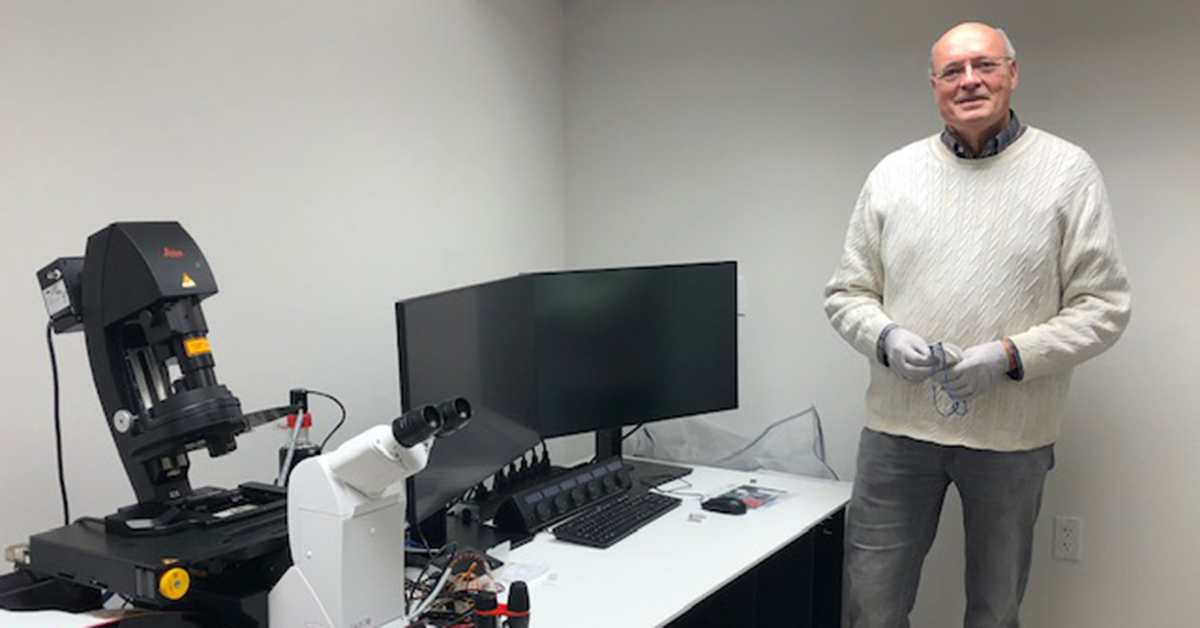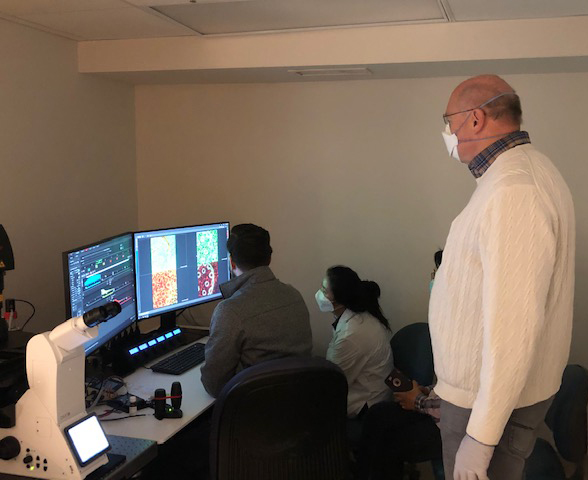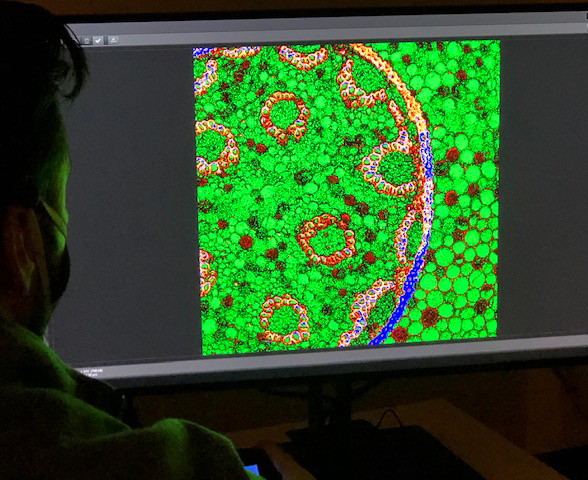Pharmacy Researcher Receives CPRIT Grant for Cancer Research Equipment
Imaging Instrumentation Will Enhance Cancer Research at TTUHSC

Nearly $3 million in imaging equipment arrived at Texas Tech University Health Sciences Center (TTUHSC) Jerry H. Hodge School of Pharmacy in Amarillo thanks to a grant from the Cancer Prevention & Research Institute of Texas (CPRIT).

The $2.8 million grant funded the purchase of three new imaging instruments that, together with existing equipment, transform the core facility on the Amarillo campus into a state-of-the-art imaging facility—an indispensable component of any competitive biomedical research institution. The Imaging Core Facility will serve current TTUHSC faculty and will also be open to researchers at the new Texas Tech University School of Veterinary Medicine. Ulrich Bickel, M.D., professor and associate dean of sciences in the TTUHSC Jerry H. Hodge School of Pharmacy, said the recently introduced Leica super resolution microscope is one of two such instruments currently deployed in the country.
“Because of its uniqueness, we expect collaborative projects will be initiated in coming years with scientists from other universities in Texas and beyond,” Bickel said.
The first imaging instrument is a microscope system that allows optical imaging of living cells at a resolution previously achievable only by electron microscopy. The inventors of the microscope received a Nobel Prize in 2014.

The second instrument is an automated imager, which enables long-term observation of living cells under conditions causing minimal levels of phototoxicity.
The third instrument is capable of whole-animal live imaging with fluorescent dyes emitting in the near-infrared range. This instrument achieves very high resolution and a depth of imaging sufficient to visualize the entire body and internal organs of a mouse in a non‐invasive manner.
“Collectively, these instruments will greatly enhance the quality of images obtainable
in ongoing and future cancer research projects,” Bickel said.
During the last 20 years, various cancers have been at the focus of research activities
at TTUHSC. In fact, the Jerry H. Hodge School of Pharmacy has a strong research mission
that includes about 15 full-time faculty conducting bench research funded by the National
Cancer Institute, the Department of Defense programs in cancer research, CPRIT and
others.
“This is one of the larger grant mechanisms that CPRIT offers, and probably the largest
CPRIT grant the SOP received to date,” Bickel said. “There were only four core support
awards funded.”
The equipment arrived on campus at the end of December.
Related Stories
Celebrating Veterans: TTUHSC’s General Martin Clay’s Legacy of Service and Leadership
From his initial enlistment in the Army National Guard 36 years ago to his leadership in military and civilian health care management roles, Major General Martin Clay’s career has been shaped by adaptability, mission focus and service to others.
Texas Tech University Health Sciences Center School of Nursing Named Best Accelerated Bachelor of Science in Nursing Program in Texas
The TTUHSC School of Nursing Accelerated Bachelor of Science in Nursing (BSN) program has been ranked the No. 1 accelerated nursing program in Texas by RegisteredNursing.org.
TTUHSC Names New Regional Dean for the School of Nursing
Louise Rice, DNP, RN, has been named regional dean of the TTUHSC School of Nursing on the Amarillo campus.
Recent Stories
National Academy of Inventors Names TTUHSC Faculty Senior Members
The National Academy of Inventors (NAI) has designated two current and one former TTUHSC faculty researchers as Senior Members.
The John Wayne Cancer Foundation Surgical Oncology Fellowship Program at Texas Tech University Health Sciences Center Announced
TTUHSC is collaborating with the John Wayne Cancer Foundation and has established the Big Cure Endowment, which supports the university’s efforts to reduce cancer incidence and increase survivability of people in rural and underserved areas.
TTUHSC Receives $1 Million Gift from Amarillo National Bank to Expand and Enhance Pediatric Care in the Panhandle
TTUHSC School of Medicine leaders accepted a $1 million philanthropic gift from Amarillo National Bank on Tuesday (Feb. 10), marking a transformational investment in pediatric care for the Texas Panhandle.
